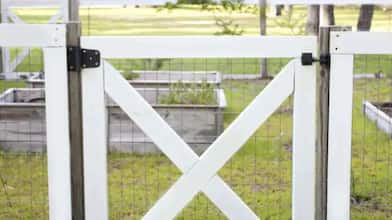Leaves left on your grass can cause mold and ruin your lawn for next season. A little care this fall can mean a lusher and healthier yard next spring.
While the fallen leaves are often picturesque, they also present hazards for your yard if left to sit. But raking leaves, especially on a property with several trees, can be a real challenge. Angie’s List, the nation’s premier provider of consumer reviews, says often professional leaf removing companies can do the job more effectively and efficiently, requiring only a fraction of the time the average homeowner would take.
Depending on the size of the yard and the number of trees, a professional could charge anywhere from $100 on up.Angie’s List tips for clearing the leaves and setting the stage for a lush lawn come spring:
Don’t be a procrastinator: It’s important to get the leaves off the ground quickly. Fallen leaves will deprive your grass of crucial sunlight during the fall months, which can lead to weakened root systems.
Worse yet, leaves can accumulate and get wet, leading to mold growth and attracting pests.
Call ahead for help: If hiring a professional, schedule service at least a week in advance of when you want the leaves raked up. Most leaves should be down by late November or early December.
Keep mowing: Continue to mow your lawn until the first frost. This will keep the grass strong and healthy. Remove the leaves when your grass has stopped growing.
Alternative methods of leaf removal: An alternative to raking and bagging is to mulch the leaves with a lawnmower. The compost serves as good fertilizer for grass. Avoid mulching up against trees, as the mulch can attract insects, which could damage or kill the tree.
Check your drains: If your yard is near a street-side storm drain, check that area for leaves. Clumps of wet leaves after a heavy rain can prevent drainage, which can flood your yard and street
What does your city require? Some cities ask you to place leaves at the curb in paper bags. Others tell residents to rake them into a row or pile at the curb so municipal vacuums can collect them.
Don’t overdo it: Raking is strenuous activity that can leave you with a sore back. Pace yourself and take frequent breaks.




